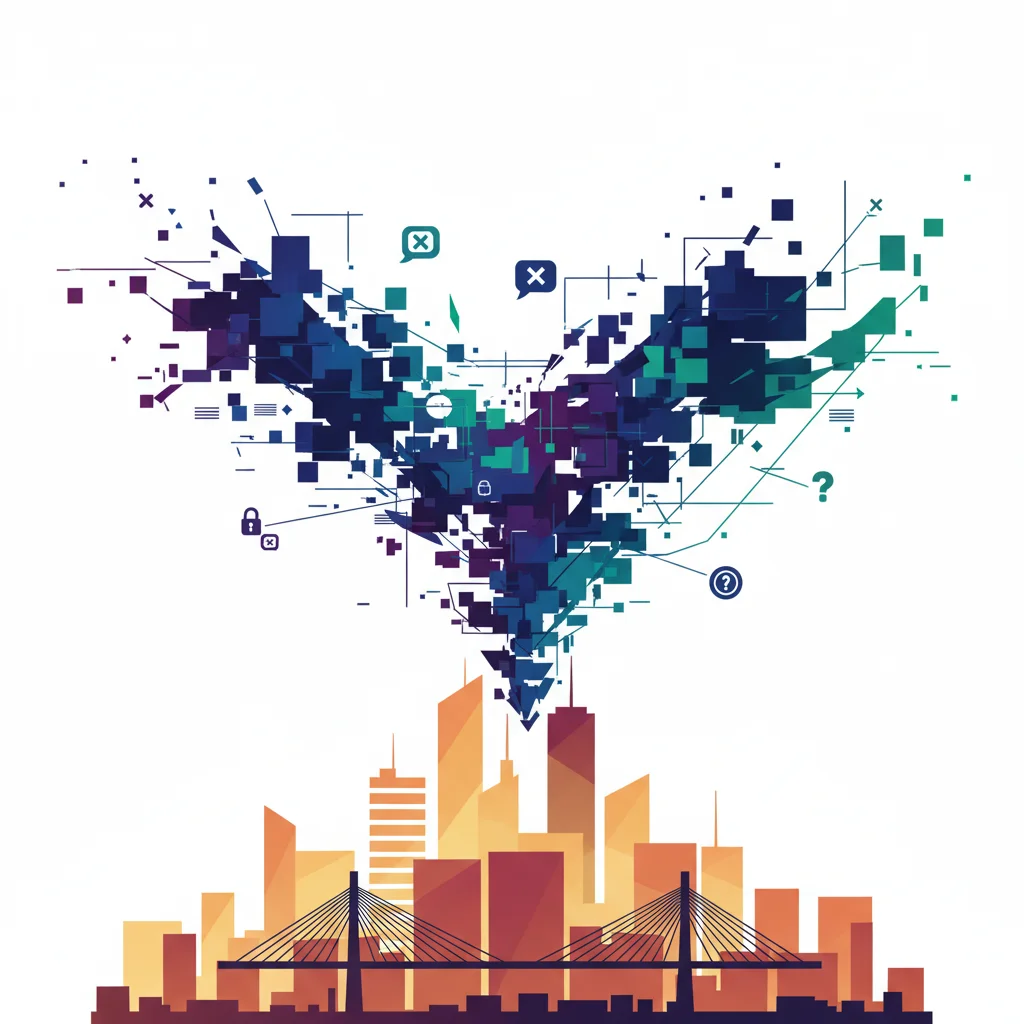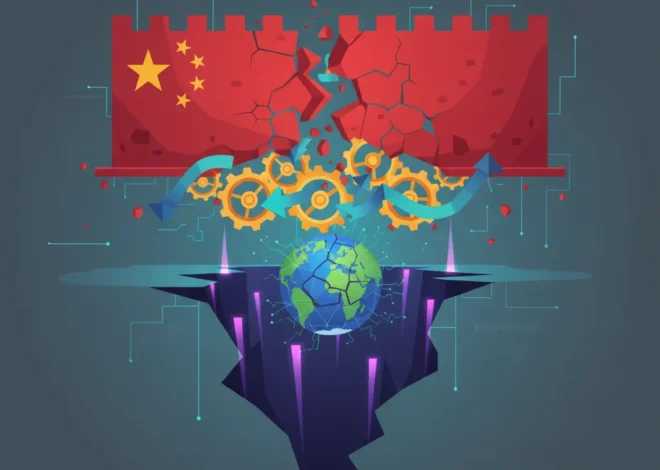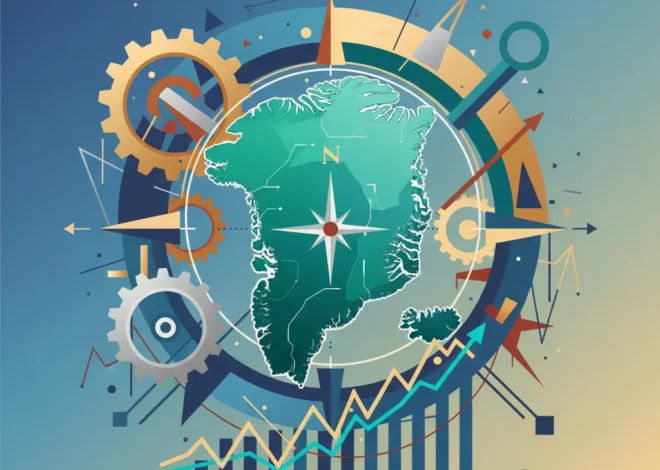
Digital Shadows Over Abidjan: How Disinformation Threatens Ivory Coast’s Economic Stability
For years, Ivory Coast has stood as a beacon of economic promise in West Africa. With a booming economy, a vibrant financial sector, and a reputation for relative stability, the nation has become a magnet for foreign investment. However, a new, insidious threat is casting a long shadow over this success story. As the country gears up for its 2025 presidential election, a surge in sophisticated disinformation campaigns is threatening to unravel the very fabric of social and economic stability that has made it so attractive to global capital. This isn’t just a political squabble fought on social media; it’s a calculated assault on one of Africa’s key economic engines, with profound implications for finance, investing, and the regional economy.
Recent warnings from Ivorian authorities have brought this digital threat into sharp focus. Officials have explicitly linked a wave of fake news and divisive online content to accounts based in neighboring countries, specifically those now governed by Russia-aligned military juntas. According to a report by the Financial Times, these campaigns are designed to inflame ethnic tensions, discredit democratic institutions, and undermine the government of President Alassane Ouattara. For investors, business leaders, and financial professionals, understanding this new form of geopolitical risk is no longer optional—it’s essential for navigating the complexities of modern emerging markets.
The Ivorian Economic Powerhouse: A Foundation Under Pressure
To appreciate the gravity of the threat, one must first understand what’s at stake. Ivory Coast is not just another developing nation; it is the economic linchpin of the West African Economic and Monetary Union (WAEMU). For over a decade, its economy has demonstrated remarkable resilience and growth, averaging over 7% annually pre-pandemic. This performance has been driven by strong public investment, a dynamic services sector, and its status as the world’s leading producer of cocoa.
Abidjan, its economic capital, has cemented its role as a regional hub for banking and finance. The regional stock exchange, the Bourse Régionale des Valeurs Mobilières (BRVM), is headquartered there, serving eight West African nations. This financial infrastructure is critical for capital formation, corporate financing, and facilitating regional trade. The stability of Ivory Coast’s political and social landscape has been the bedrock upon which this economic success was built, giving investors the confidence to pour capital into everything from infrastructure projects to burgeoning fintech startups. The country’s strong economic fundamentals have made it a standout performer in the African stock market landscape, attracting both institutional and retail investors interested in high-growth opportunities.
The New Weapon of Choice: Disinformation’s Economic Fallout
The disinformation campaigns targeting Ivory Coast are a form of hybrid warfare, aiming to achieve strategic goals without firing a single shot. The objective is to create chaos from within, eroding public trust and creating a permissive environment for political instability. The economic consequences of such campaigns can be swift and severe.
1. Deterioration of Investor Confidence
Capital is notoriously skittish; it flees uncertainty. Disinformation that successfully stokes fears of political violence, contested election results, or widespread social unrest can trigger a rapid reassessment of risk. International investors may pause planned projects, divest from the local stock market, or demand higher risk premiums on Ivorian debt. A sudden outflow of capital could put pressure on the nation’s currency and financial reserves, impacting the entire banking system.
2. Disruption to Critical Supply Chains
Ivory Coast’s economy is heavily reliant on the export of agricultural commodities, primarily cocoa. Disinformation-fueled unrest in key production regions or along transport corridors to the ports of Abidjan and San-Pédro could cripple this vital industry. Any disruption to the cocoa trade would have immediate ripple effects on global commodity markets and impact the earnings of multinational corporations involved in the sector. This directly affects the world of international trading and futures markets.
3. Strain on the Banking and Financial System
Widespread panic, even if based on false information, can lead to bank runs or a liquidity crisis. Furthermore, political instability makes it more difficult for businesses to operate, leading to loan defaults and increasing the level of non-performing assets on banks’ balance sheets. This undermines the health of the entire banking sector, which is central to the country’s economics and its ability to finance future growth.
Trump's Crypto Gambit: A New American Economy or a Political Masterstroke?
To better understand the cascading effects, consider the following risk matrix, which outlines how digital falsehoods can translate into tangible economic damage:
| Type of Disinformation | Potential Social Impact | Direct Economic Consequence | Sectors Most at Risk |
|---|---|---|---|
| Fake reports of ethnic violence or military coups | Panic, social unrest, communal clashes | Capital flight, stock market sell-off, emergency government spending | Finance, Banking, Retail |
| Allegations of foreign interference or neo-colonialism (anti-France sentiment) | Protests targeting foreign businesses, breakdown of diplomatic ties | Disruption of trade agreements, boycott of foreign goods, damage to foreign-owned assets | Energy, Logistics, Telecommunications |
| False narratives about crop failures or commodity price manipulation | Hoarding, protests by farmers, supply chain disruptions | Volatility in commodity futures (cocoa, coffee), decline in export revenues | Agriculture, Global Trading, Shipping |
| Rumors of impending currency devaluation or bank insolvency | Bank runs, capital controls, loss of faith in the financial system | Liquidity crisis, credit crunch, halt in lending and investment | Banking, Fintech, All sectors |
Geopolitical Chess: The ‘Sahel Alliance’ and Russian Influence
The threat is not emerging from a vacuum. The source of the disinformation, as noted by Ivorian officials and supported by analysis from organizations like the Africa Center for Strategic Studies, appears to be a network of actors linked to the military juntas in Mali, Burkina Faso, and Niger. These nations, forming a “coup belt” across the Sahel, have pivoted away from traditional Western partners like France and towards closer security and political ties with Russia.
This alliance has been accompanied by a surge in anti-Western and pro-Russian narratives online. By targeting stable, Western-aligned democracies like Ivory Coast, these actors aim to destabilize the region further, delegitimize democratic governance, and expand their own sphere of influence. For Russia, a destabilized West Africa that is skeptical of the West presents a low-cost, high-impact opportunity to challenge Western influence and gain access to strategic resources, as detailed in a Carnegie Endowment for International Peace analysis. This is not merely about social media posts; it’s a strategic play with significant consequences for global economics and power balances.
Beyond the Ceasefire: Gaza's Power Shift and the Economic Tremors for Investors
Building Resilience: A Multi-Front Defense
Combating this threat requires a concerted effort from the government, the private sector, and civil society. For its part, the Ivorian government is ramping up monitoring and public awareness campaigns. But for the business and investment community, a passive approach is untenable. Proactive measures are essential for risk mitigation.
Actionable Strategies for Investors and Businesses:
- Enhanced Political Risk Analysis: Firms must integrate digital threat analysis into their risk models. This includes monitoring social media trends, identifying key disinformation narratives, and understanding the networks that propagate them.
- Investing in Media Literacy: Corporate Social Responsibility (CSR) initiatives can be directed towards funding local journalism and media literacy programs. An informed populace is the first and best line of defense against manipulation.
- Leveraging Financial Technology: The fintech sector can play a crucial role. AI-driven platforms can help financial institutions monitor for signs of panic or unusual market activity linked to disinformation events. This fusion of financial technology and security is a growing field.
- Scenario Planning: Businesses should run simulations for how they would respond to various instability scenarios, from supply chain disruptions to a full-blown political crisis, ensuring operational resilience.
The Punk Rock Pivot: What a New Play Reveals About Fintech's Rebellion Against Traditional Finance
The Path Forward: Vigilance in a Volatile World
The unfolding situation in Ivory Coast is a microcosm of a global challenge. The weaponization of information is a direct threat to the open, stable, and predictable environments that both democratic societies and financial markets depend on. The battle is no longer just on physical territory but in the digital commons, and the stakes are incredibly high.
For investors, the lesson is clear: in the 21st century, a deep understanding of economics must be paired with an equally sophisticated understanding of geopolitics and information warfare. The stability of the Ivorian stock market, the security of investments in its burgeoning economy, and the future of regional finance depend not only on policy decisions made in Abidjan but also on the digital shadows emanating from beyond its borders. The future of investing in emerging markets will belong to those who can see through the noise and accurately price this new and complex risk.


